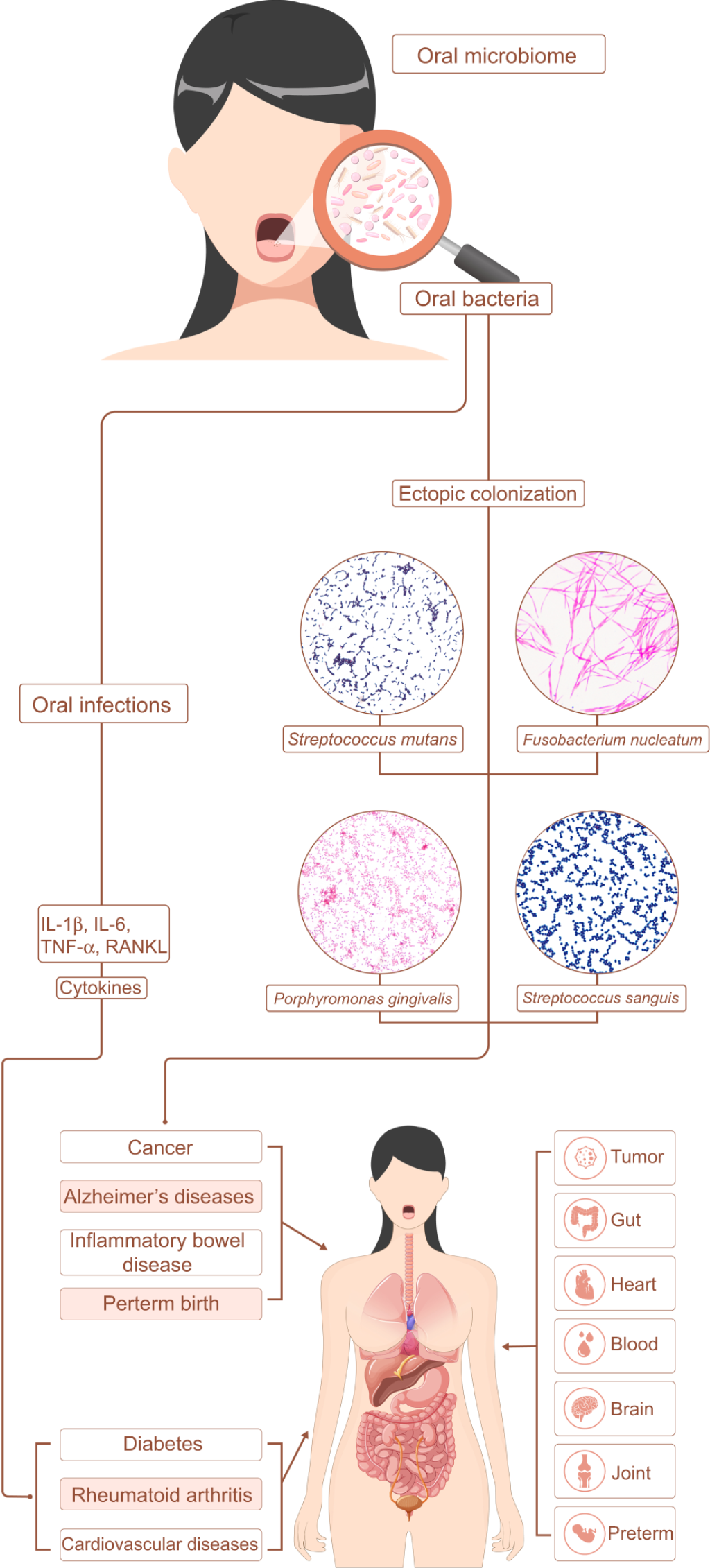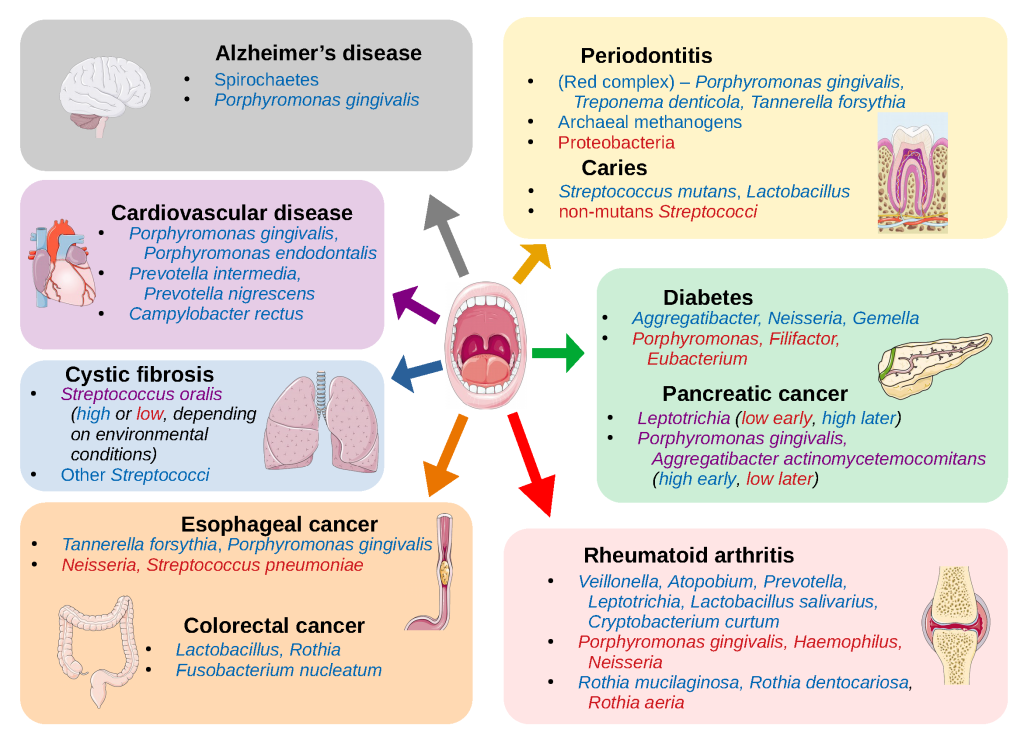Unveiling The Truth: Is Oropharyngeal Flora Bad? Click To Discover The Answer!
Is Oropharyngeal Flora Bad?
Introduction
Dear Plant Lover,
Welcome to our informative article about oropharyngeal flora. In this article, we will explore the question of whether oropharyngeal flora is bad or not. Oropharyngeal flora refers to the microorganisms that naturally reside in the mouth and throat area. These microorganisms play an important role in maintaining oral health and overall well-being. However, there is ongoing debate about whether some of these microorganisms can have negative effects on our health. Let’s dive deeper into this topic and uncover the truth behind oropharyngeal flora.
2 Picture Gallery: Unveiling The Truth: Is Oropharyngeal Flora Bad? Click To Discover The Answer!


In this article, we will provide you with a comprehensive overview of oropharyngeal flora. We will discuss what it is, who is affected, when it becomes a concern, where it can be found, why it may be considered bad, and how it can be managed. So, let’s begin our journey into the world of oropharyngeal flora.
What is Oropharyngeal Flora?
Oropharyngeal flora, also known as the oral microbiome, refers to the collection of microorganisms that naturally inhabit the mouth and throat. These microorganisms include bacteria, fungi, viruses, and other microbes. The oral microbiome is a complex ecosystem with a delicate balance of beneficial and potentially harmful microorganisms.

Image Source: springernature.com
🔍 Studies have shown that the oropharyngeal flora plays a crucial role in maintaining oral health. Beneficial microorganisms help protect against harmful pathogens, support immune function, and aid in the digestion of certain foods. However, an imbalance in the oral microbiome can lead to various oral and systemic health issues.
Why is Oropharyngeal Flora Important?
The oropharyngeal flora is essential for maintaining a healthy mouth and throat. It helps prevent the overgrowth of harmful bacteria and fungi, which can cause oral infections, bad breath, and other oral health problems. Additionally, the oral microbiome plays a role in immune system development and function.
🔍 Research has shown that the oropharyngeal flora interacts with the immune system, helping to train it to recognize harmful pathogens and mount an appropriate response. This interaction is crucial for overall immune system health and defense against infections.
Who is Affected by Oropharyngeal Flora?
Oropharyngeal flora can affect people of all ages and backgrounds. Everyone has a unique oral microbiome, which is influenced by various factors such as genetics, diet, oral hygiene practices, and overall health status. Certain individuals may be more susceptible to imbalances in their oral microbiome, leading to potential health issues.

Image Source: mdpi-res.com
🔍 Factors such as poor oral hygiene, smoking, certain medications, and underlying health conditions can disrupt the balance of the oral microbiome and increase the risk of oral health problems.
When Does Oropharyngeal Flora Become a Concern?
Oropharyngeal flora becomes a concern when there is an imbalance in the microbial community. This imbalance, also known as dysbiosis, can occur due to various reasons, including poor oral hygiene, antibiotic use, and certain medical conditions. Dysbiosis can lead to the overgrowth of harmful microorganisms, resulting in oral infections, inflammation, and other health complications.
🔍 It is important to note that not all imbalances in the oropharyngeal flora lead to negative health effects. The oral microbiome is highly adaptable and can often restore its balance on its own. However, in some cases, intervention may be required to restore oral health.
Where is Oropharyngeal Flora Found?
Oropharyngeal flora can be found in the mouth and throat area. The oral cavity provides an ideal environment for microorganisms to thrive, with its warm and moist conditions. The tongue, teeth, gums, tonsils, and throat are common sites where microorganisms reside.
🔍 It is important to note that while the mouth and throat are the primary reservoirs for oropharyngeal flora, these microorganisms can also be found in other parts of the body, such as the gastrointestinal tract and the respiratory system.
Why Can Oropharyngeal Flora Be Considered Bad?
Oropharyngeal flora can be considered bad when there is an overgrowth of potentially harmful microorganisms or when the balance of the oral microbiome is disrupted. This can lead to oral health problems such as cavities, periodontal disease, oral thrush, and bad breath. Additionally, imbalances in the oral microbiome have been linked to systemic health issues, including cardiovascular disease, respiratory infections, and even certain types of cancers.
🔍 While the majority of microorganisms in the oral microbiome are harmless or beneficial, certain pathogenic bacteria and fungi can cause infections and contribute to disease development. Maintaining a healthy balance of microorganisms is crucial for overall oral and systemic health.
How Can Oropharyngeal Flora Be Managed?
Managing oropharyngeal flora involves maintaining good oral hygiene practices and promoting a healthy oral microbiome. This includes regular brushing and flossing, using antimicrobial mouthwashes, eating a balanced diet, and avoiding habits such as smoking that can disrupt the oral microbiome.
🔍 In some cases, healthcare professionals may recommend additional interventions such as probiotics or antimicrobial treatments to restore the balance of the oral microbiome. However, it is important to note that the management of oropharyngeal flora should be individualized based on the specific needs and conditions of each person.
Advantages and Disadvantages of Oropharyngeal Flora
Advantages:
👍 Protection against harmful pathogens: The presence of beneficial microorganisms in the oropharyngeal flora helps protect against the overgrowth of harmful bacteria and fungi, reducing the risk of infections.
👍 Immune system support: The oropharyngeal flora plays a role in training and supporting the immune system, enhancing its ability to recognize and respond to pathogens.
👍 Digestion of certain foods: Some microorganisms in the oropharyngeal flora aid in the digestion of certain foods, promoting proper nutrient absorption.
Disadvantages:
👎 Oral health problems: Imbalances in the oropharyngeal flora can lead to oral health issues such as cavities, gum disease, and bad breath.
👎 Systemic health complications: Dysbiosis of the oral microbiome has been linked to systemic health problems, including cardiovascular disease and respiratory infections.
👎 Increased susceptibility to infections: Disruptions in the oral microbiome can increase the risk of developing oral and upper respiratory tract infections.
FAQs about Oropharyngeal Flora
Q: Can poor oral hygiene disrupt the balance of oropharyngeal flora?
A: Yes, poor oral hygiene can lead to an imbalance in the oral microbiome, increasing the risk of oral health problems.
Q: Can antibiotics affect the oropharyngeal flora?
A: Yes, antibiotics can disrupt the balance of the oral microbiome by killing both harmful and beneficial microorganisms.
Q: Are there any natural ways to maintain a healthy oral microbiome?
A: Yes, maintaining good oral hygiene practices, eating a balanced diet, and avoiding habits that can disrupt the oral microbiome can help promote a healthy balance of microorganisms.
Q: Can the oropharyngeal flora influence respiratory health?
A: Yes, imbalances in the oral microbiome have been associated with an increased risk of respiratory infections and conditions such as pneumonia.
Q: Should everyone be concerned about their oropharyngeal flora?
A: While everyone has an oral microbiome, not everyone needs to be overly concerned. However, individuals with specific risk factors or oral health issues may benefit from monitoring and managing their oral microbiome.
Conclusion
In conclusion, oropharyngeal flora plays a vital role in maintaining oral health and overall well-being. While the majority of microorganisms in the oral microbiome are beneficial or harmless, imbalances in the microbial community can lead to oral and systemic health problems. It is important to maintain good oral hygiene practices and promote a healthy oral microbiome through proper diet and lifestyle choices. If you have specific concerns about your oral health or oropharyngeal flora, it is always best to consult with a healthcare professional for personalized advice and guidance.
Final Remarks
Dear Flora Enthusiast,
We hope this article has provided you with valuable insights into the world of oropharyngeal flora. It is crucial to understand the importance of maintaining a healthy oral microbiome and the potential risks associated with imbalances. Remember, every individual’s oral microbiome is unique, and the management of oropharyngeal flora should be tailored to specific needs and conditions. If you have any further questions or concerns, we recommend seeking professional advice. Take care of your oral health, and may your flora flourish!
This post topic: Flora

![苔蘚學堂] 苔蘚參考書籍PART - Yu Feng - Medium](https://chrocu.biz/wp-content/uploads/2023/07/part-yu-feng-medium-150x150.jpeg)

